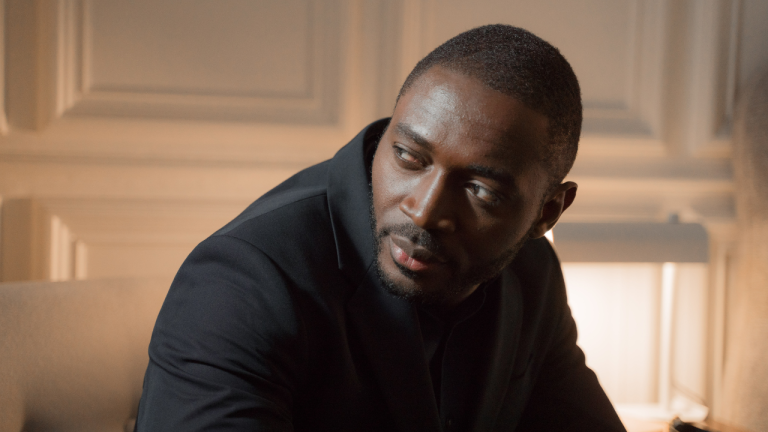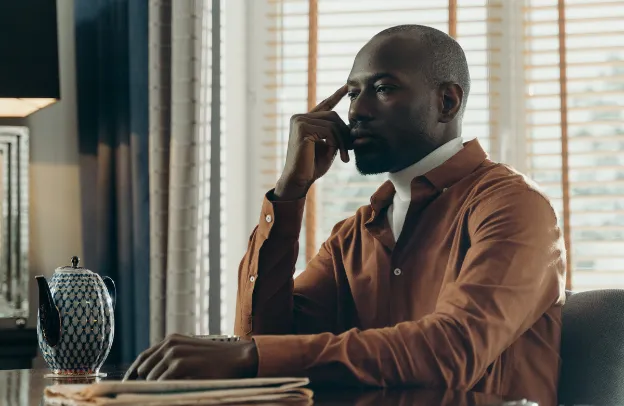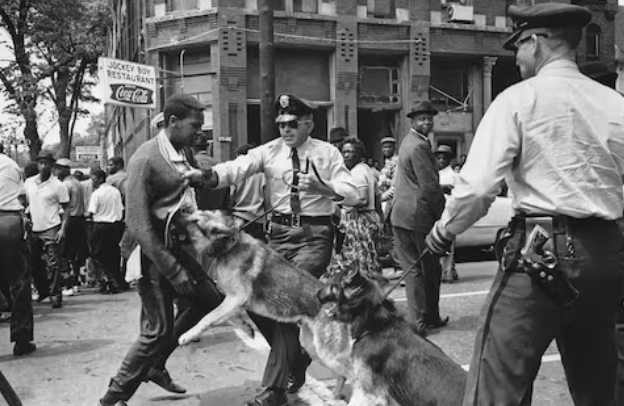The Sound of the Genuine: A Guide to Authenticity and Inner Truth by Negus Rudison-Imhotep, Ph.D.

Dr. Negus Rudison-Imhotep | Contributor on memory and memory-building-related topics
At the heart of Howard Thurman’s counsel to Dr. Martin Luther King Jr. lies an invitation to engage with the innermost aspects of one’s identity, values, and purpose—essentially, to listen deeply to the “sound of the genuine” within oneself.
Learn How to Transform Your Story into an Asset through our Story To Marketing Assets (SMA) Framework.
Thurman, a mystic, theologian, and philosopher, conceptualized authentic leadership as a process rooted in the profound alignment between one’s inner moral compass and external actions.
His mentorship was designed not merely to shape King’s political activism but to foster a deeper, more enduring connection to his authentic self, a self grounded in spiritual integrity that would guide him through the tumultuous struggles of the Civil Rights Movement.
See also Understanding The State Of Africana Studies And Civil Rights Activism With Eva Bohler
Thurman’s call to “listen” to the genuine is not simply metaphysical exhortation but a practical framework for action in an often hostile and fragmented social environment. The concept of “the sound of the genuine” can be understood as a kind of moral tuning fork—a voice that speaks to one’s core identity, mission, and ethical imperatives.
For King, the resonance of this voice was inseparable from his rejection of the racial status quo. Thurman’s guidance encouraged King to forge a path of justice not from a place of reaction to societal pressures but from an empowered space of self-realization.
This self-authenticity, as Thurman envisioned it, would provide the foundation for King’s commitment to racial equality and nonviolent resistance.
The Spiritual Foundation of King’s Activism
The profound intersection of spirituality and activism in King’s leadership cannot be understood without considering the spiritual dimensions of Thurman’s teachings.
Thurman, who had been a pivotal figure in establishing the first interdenominational church for racial reconciliation, emphasized the essential link between inner peace and social transformation.
He argued that external efforts for justice must first be rooted in a deep, personal spiritual foundation—an idea that fundamentally influenced King’s approach to leadership.
King’s journey, both spiritual and political, was shaped by this understanding. It was through Thurman’s mentorship that King came to recognize that true justice could not be achieved merely through political maneuvering or external strategies; it required an inner transformation of both individuals and communities.
You might also like to read Supporting Women in Rice Production in Africa: Empowering Communities
Thurman’s model of leadership was not one of mere external compliance to a political agenda, but one that demanded a continuous return to the center of one’s spiritual and ethical beliefs.
King’s invocation of “love” as the central tenet of his nonviolent resistance was thus not an idealistic abstraction but a moral imperative, grounded in his profound sense of the divine and the interconnectedness of all people.
In this sense, King’s commitment to nonviolence was not a passive stance, but an active manifestation of the “genuine” that Thurman urged him to cultivate.
Thurman’s Advice: Resisting External Manipulation
In Thurman’s words, “If you cannot hear it, you will all of your life spend your days on the ends of strings that somebody else pulls.” This warning is a powerful cautionary statement about the dangers of living a life detached from one’s own moral and spiritual clarity.
For King, this idea highlighted the risk of becoming an instrument of forces beyond his control—whether those forces were oppressive political ideologies, societal structures, or the expectations of others.
King’s life provides ample evidence of the complex interplay between the internal and external forces that shaped his actions. He faced constant pressure from political elites, public expectations, and even within the civil rights movement itself to moderate his stance or abandon the principles of nonviolence.
Thurman’s mentorship served as a counterpoint to these pressures, urging King to maintain his moral independence and resist external manipulation. Thurman helped King recognize that true leadership requires acting from a deep internal conviction, not from external demands.
By encouraging King to remain rooted in his own “genuine,” Thurman offered a form of spiritual resistance to the forces of co-optation and compromise.
The metaphor of being “pulled by strings” highlights the fundamental question of agency and autonomy. For King, external forces—whether in the form of systemic racism, political manipulation, or public expectations—could easily divert his path from the central mission of justice.
Thurman’s teachings, however, offered King a resilient framework of leadership: one that was not reactive but responsive to an internal moral compass that transcended external influence. King, in turn, consistently modeled this practice, insisting that the ethical core of his activism came not from pragmatic calculation, but from a higher, more transcendent truth.
The Lasting Impact of Thurman’s Mentorship
The long-term influence of Thurman’s mentorship on King’s leadership can be understood in terms of both personal and collective transformation. Thurman provided King not only with philosophical guidance but also with a model of how to sustain one’s moral integrity amid immense societal pressure.
See also The Power Of Mentorship For African Diaspora Small Businesses
King’s ability to endure personal sacrifice, to inspire collective action, and to remain steadfast in his commitment to nonviolence, all of which were hallmarks of his leadership—can be traced directly to Thurman’s guidance on cultivating an authentic inner life.
Moreover, Thurman’s legacy as a spiritual mentor was one of self-transcendence. His teachings empowered King to transcend the immediate demands of politics, to rise above the pervasive forces of racism and hatred, and to direct his energies toward a more profound and sustainable vision of justice.
Thurman taught King that the struggle for justice was not only a socio-political battle but a spiritual one that required constant self-reflection, moral clarity, and an unwavering commitment to the dignity of all individuals.
This notion of justice, rooted in spiritual authenticity, profoundly shaped King’s leadership throughout the Civil Rights Movement.
Conclusion on A Guide to Authenticity and Inner Truth
The mentorship between Howard Thurman and Dr. Martin Luther King Jr. represents one of the most significant intellectual and spiritual legacies of the twentieth century. Thurman’s guidance on listening to the “sound of the genuine” provided King with the tools to navigate the complexities of leadership in an era defined by social upheaval and moral crisis.
See also Devising a Strategy to Reduce Recidivism in the Heartland By Negus Rudison-Imhotep, Ph.D
Thurman’s teachings were not just a guide for political strategy; they were an invitation to live a life of deep integrity and purpose. By urging King to attune himself to the inner voice of authenticity, Thurman helped him resist the forces of external manipulation and remain grounded in his moral and spiritual convictions.
The results of this mentorship are evident in King’s ability to lead with moral clarity, nonviolence, and a profound commitment to justice. Thurman’s call to “hear the sound of the genuine” remains a timeless ethical framework for anyone seeking to lead a life of integrity, purpose, and authenticity in the face of societal pressures.
Learn with AClasses Academy and improve yourself and your business skills.
References
- Thurman, Howard. Jesus and the Disinherited (1949).
- King Jr., Martin Luther. Stride Toward Freedom: The Montgomery Story (1958).
- King Jr., Martin Luther. The Autobiography of Martin Luther King, Jr., edited by Clayborne Carson (1998).
- Bledsoe, Charles & Williams, William. Howard Thurman: The Mystic as Prophet (1983).
- Mays, Benjamin E. Howard Thurman: A Man for the Ages (1985).
- West, Cornel. “The Ethical and Theological Dimensions of Howard Thurman’s Thought.” The Howard Thurman Papers (1985).
- Carson, Clayborne. “The Legacy of Martin Luther King Jr. and the Spirit of Nonviolence.” The Journal of American History (1999).
- O’Neal, Bill. “Thurman’s Influence on King: The ‘Sound of the Genuine’ and the Ethical Dimension of the Civil Rights Movement.” Journal of Black Studies (2000).
- Fluker, Walter Earl. The Ground of Our Asking: Theological Explorations for the Black Church (1998).
- Jones, William B. “Thurman and King: A Legacy of Spiritual Leadership in the Civil Rights Movement,” Journal of African American History (2005).





